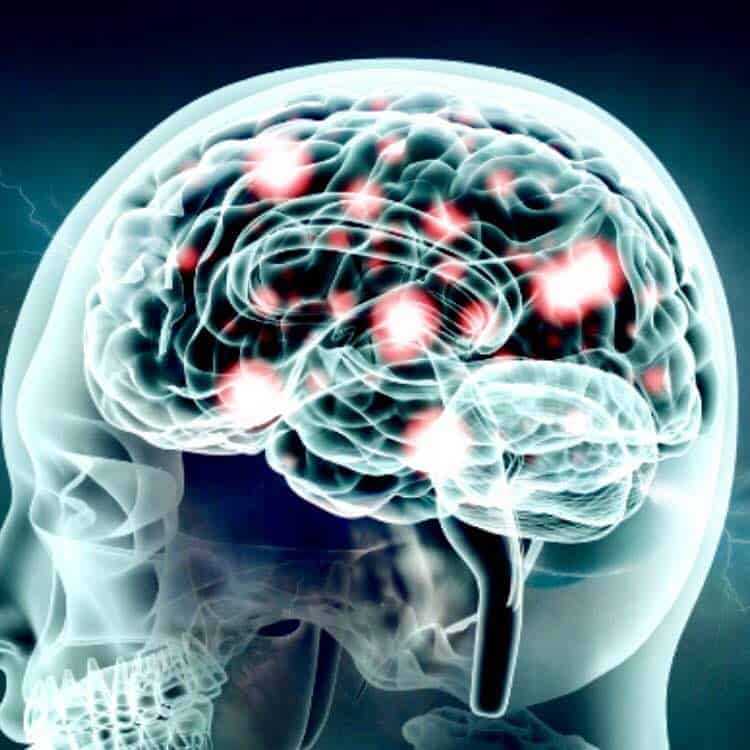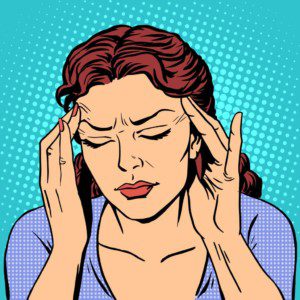Your brain capacity isn’t fixed! In this article, we’re going to talk about the wonderful, potentially life-altering truths of neurogenesis and neuroplasticity. Armed with this knowledge, you’ll be better positioned to keep your brain young and healthy!
If there is one thing that you take away from this article, please let it be this: your mental capacity is not fixed. Your intelligence isn’t fixed. Your memory isn’t fixed. Nothing regarding mental capability is static. You can have a young brain. If you don’t have a young brain, you can make your brain young!
For a long time, scientists claimed that your brain could only change for the worse. You were born with a certain amount of brainpower, and that was it. Provided you didn’t suffer some traumatic injury; your brain would remain mostly unchanged until you died. Then, scientists clamored on about the “horrific” effects of aging on the brain. Not a peep was spoken about the human mind’s constantly-evolving nature – the sheer dynamism.
How is keeping your brain young even possible?
“Your brain – every brain – is a work in progress. It is ‘plastic.’ From the day we’re born to the day we die, it continuously revises and remodels, improving or slowly declining, as a function of how we use it.” – Michael Merzenich, Ph.D., a pioneer in the field of neuroplasticity
First, let us point out the obvious: if you don’t challenge your brain throughout life, it will eventually slow down due to aging. Let’s briefly go over what happens to the structure and function of the brain as you progress through life.
- In one’s late 20s, the brain begins to lose neurons due to
- The cerebrum, the outermost area of the brain, begins to thin, resulting in a reduction of synapses. (Synapses are chemical “messengers” that transmit information from one brain cell to another.)
- At about 60, the brain’s frontal lobe and hippocampus regions begin to shrink. At 75, you will have lost approximately one-tenth of the neurons you had when born.
- Theoretically, fewer brain connections and synapses result in slower cognitive processing.
Now, even with these changes, it is possible to keep your brain young provided that enough time is devoted to cognitive exercise (more on this later.) Numerous people of “advanced age” have retained most – if not all – of their cognitive abilities.
It’s all about how you choose to use your brain.
Neuroplasticity changes everything
“Not so many years ago, the predominant belief was that the brain was not plastic at an older age – and we contributed to an appreciation that the brain is in fact continuously plastic.” – Michael Merzenich, Winner of the 2016 Kavli Prize in Neuroscience (source)
Disseminating the truth of neuroplasticity – and its implications – hasn’t been easy. Outside of doctors, scientists, and a few other experts, most laypeople haven’t the slightest clue what the term means. This is a shame, since the very dynamic nature of human brain can very well change their lives.
In the simplest terms, the fact that your brain is neuroplastic implies that it is moldable or malleable. This means you can take steps to promote a young brain. More specifically, neuroplasticity means:
- Plasticity is a common result of changing stimuli.
- Interaction with the environment produces physical changes in the brain.
- Connections between neurons reassemble in response to changes in the environment. (This is why humans are adept at adapting to outside changes.)
- The brain can at least partially recover structurally and functionally from trauma.
- Neurogenesis – the spawning of new brain cells (neurons) – continues throughout adult life in some areas of the brain.
12 Ways to Keep Your Brain Young
Let us now dive into what we can do to keep our brain healthy, young, and smart – according to Harvard scientists! Onward!
-
Challenge your brain
The pioneers of neuroplasticity discovered that stimulation and active engagement in an activity produce physical changes in the brain. The brainier the task, the better.
Building up a “cognitive reserve” – knowledge, memories, etc. can safeguard the brain against damage later in life. Some examples of challenging tasks include learning a new instrument or language. Additionally, do crossword puzzles, play brain games, perform mental calculations, and read if you want a young brain!
-
Watch your diet
Per a study published in the journal Neural Plasticity, numerous research studies have found that diet “(affects) brain structure and function, and cognitive function in aging adults” while “(modulating) neuroplasticity substrates…” Among the different neuroplasticity processes that diet influences are:
- Inflammation: a defunct inflammatory response can cause brain damage
- Antioxidant defenses: free radicals and toxins can build up in brain cells, causing damage
- Neurogenesis: the spawning of new brain cells (neurons); a.k.a. the building of a young brain
- Neurotrophic signaling: communication between proteins that assist in neurons’ development, function, and survival.
To put your best brain forward, eat a diet that is a balance of fresh fruit and vegetables, whole grains, and lean meats.
-
Lay off the alcohol
Research shows an existing correlation between alcohol use and dementia, a neurological condition primarily targets the elderly. Symptoms of dementia include memory loss, difficulty thinking and organization, losing track of time and day, forgetting how to perform routine tasks, and personality changes.
There’s nothing wrong with a drink or two but save the hangovers for special occasions.
-
Listen to music to promote a young brain
While we may not think too much about popping in our earplugs and jamming out to our favorite tunes, it turns out that there is a complex symphony happening upstairs.
Johns Hopkins University researchers placed jazz and rap musicians into an MRI machine to see what happens inside the brain and told them to improvise some tunes. They found that our brain has to seriously up its computing power to make sense of what amounts to a random sequence of beats.
-
Don’t multitask
Multitasking, besides being a myth, stresses out the brain. And anything that stresses out the brain contributes to aging. Instead, try single-tasking – directing your attention to the task until finished. It’s less stressful, more effective, and may even be more enjoyable. Not to mention, it will help you maintain a young brain.
-
Beware of negative emotions
Speaking of stress, negative emotions are about as toxic as it gets. Besides sapping your energy, negatively-charged feelings can contribute to anxiety, depression, sleep deprivation and exhaustion. People who experience negative emotions frequently are stick with lower life satisfaction, more stress, and expedited signs of aging.
If you’re stuck in a cycle of negative emotions, try learning a relaxation practice like meditation, yoga, or diaphragmatic breathing. Additionally, avoid toxic people and situations as much as possible.
-
Get regular exercise for a young brain
Exercise may be the best thing you can do for your mind. Physical activity increases blood flow, releases “feel good” hormones, and promotes neurogenesis. According to Harvard University researchers, animals that exercise appear to have more “efficient, plastic, and adaptive” minds.
Try getting at least 30 to 45 minutes of moderately intense exercise three times per week.
-
Watch your blood pressure and blood sugar
Both high blood sugar and high blood pressure increase the risk of dementia and cognitive decline in old age. Simple lifestyle habits like eating right, exercising regularly, not smoking, limiting alcohol intake, and maintaining a healthy weight can protect your brain and heart.
Make sure you visit the doctor once or twice a year for routine checkups. Discuss ways to monitor these conditions with your physician if you have a history of high blood sugar or high blood pressure.
-
Don’t smoke
Do you want to age too early? Smoke. Besides increasing the risk of stroke, nicotine addiction causes anxiety and irritability due to cravings and withdrawal. Smoking is also the strongest predictor of premature aging and wrinkling in men and women.
Quitting smoking isn’t easy, but it is possible with the right approach. Visit smokefree.gov for more information.
-
Monitor stress
Not all stress is avoidable, but episodes of hair-tugging stress fests should rarely happen, if ever. Chronic stress causes a continuous release of stress hormones which can interfere in normal functioning. Your risk of cardiovascular disease increases as does your risk of stroke.
Chronic stress is hazardous and requires a solution. While figuring out how to reduce your stress, consider a contemplative practice like mindfulness meditation, which has been shown to reduce anxiety and stress.
-
Talk to people
The simple act of listening to someone else’s perspective prompts the mind to try and think in different ways – a component of “flexible thinking.” Indeed, meeting new people boosts the brain’s executive function, allowing you to remain focused, tune out distractions, and improve short-term memory.
If you struggle with talking to people, try joining a club or online group to get things started. If the group is local, there will be plenty of opportunities to meet up. Promote a young brain by interacting positively with others.
-
Get your beauty sleep
Yes, beauty sleep is a real thing! But more important than your outward appearance is what’s going on upstairs. Sleep deprivation, which ages the brain, is more common in older adults than younger adults. Shortage of sleep causes continuous low-grade inflammation, leading to numerous health problems, including a stroke.
If you are having difficulty sleeping, connect with your healthcare provider. Aim for a minimum of seven hours each night.
Final Thoughts on Ways to Have a Young Brain
The above ideas and tips might seem like small things, but they can make all the difference. They can affect your cognitive health and your life positively. Believe that you deserve to live a healthy and happy life, both now and in the future. Take the steps you need to create that life for yourself, and you will find yourself with a young brain and a youthful attitude toward life.


















